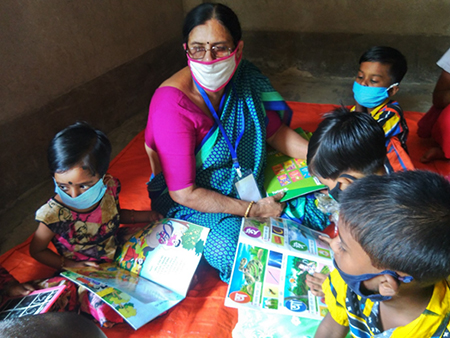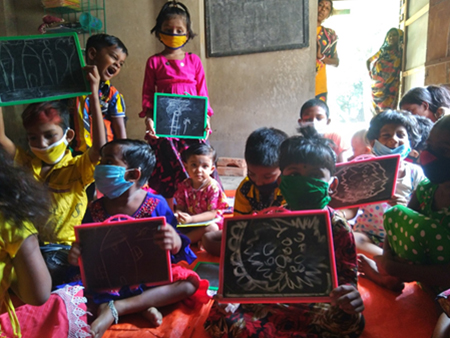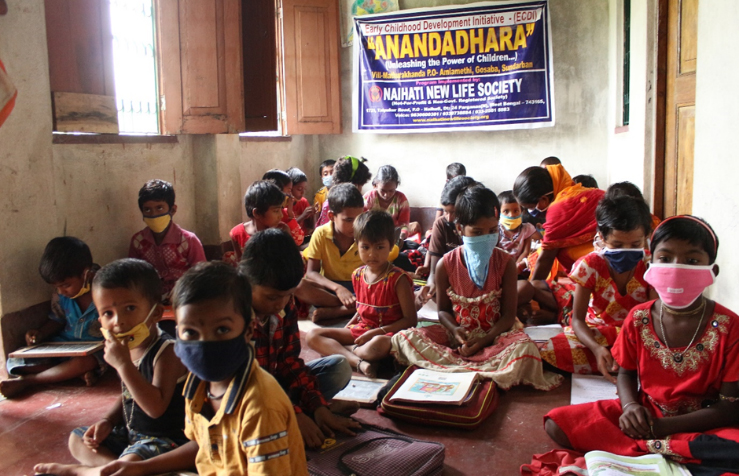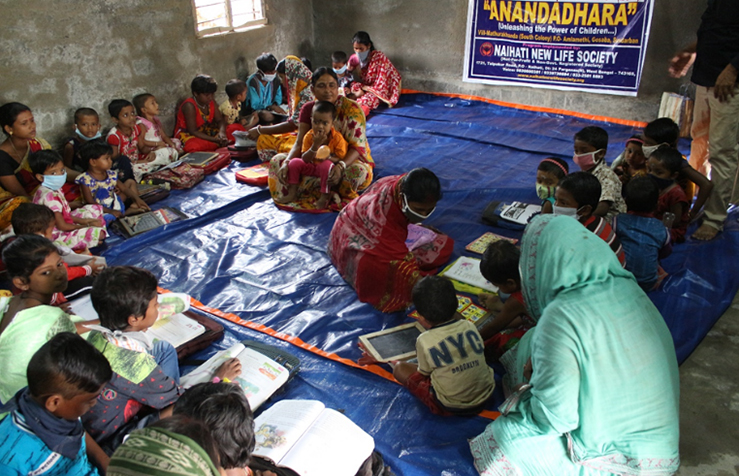The ‘Early Childhood Development Intervention Initiatives’ (ECDI) is the first step of school readiness especially for the ‘Children as First Generation Learners’ through an integrated child development program. The ‘ECDI’ program of ‘Naihati New Life Society’ is the starting point in ‘Educating the larger Communities’ and it begins much before a child is born. It has five major components: nutrition, health, environment, parental education and teachers’ training.
Our ECDI program leading to entry into primary and secondary schools and has five indicators namely: a) physical well-being and motor development; b) helping to develop literacy and language through play method; c) cognition and general knowledge including some number games; d) learning behaviour improvement called approaches toward learning; e) social and emotional development.
These overlapping and interconnected five domains are the indicators of a child’s ability to succeed in a school setting through a gradual process of developing skills, as fundamentals of early childhood and development with age-appropriate lessons. The initiative for school readiness includes a play-learning method, health-care, nutrition and parental special education to ensure healthy affordable diet, hygiene and developing an accountable, violence-free, safe family and neighbourhood leading to the development of good social-emotional learning (SEL) and physical health. We adopt villages with critical needs and engage communities before starting Community Education Centres (CEEC) as a strategic approach to raise community support groups and enhance their learning.


We’ve special initiatives to end school drop-outs with after remedial classes for those joining Primary and Middle-schools, providing personal needs of girls for managing menstrual hygiene. , The initiative also includes parental education for the prevention of family violence and early marriage, lessons on kitchen gardening to meet the family nutritional needs and overall health.
For it is proven that an extra year of girls’ education can improve their capacity, health, secure a legitimate place and rights in the family with decision-making power. The girls can also exercise better control over their reproductive health rights, determine the family size, be able to provide better care for their babies and contribute to the family’s needs of about 23% and more so to the larger communities.

